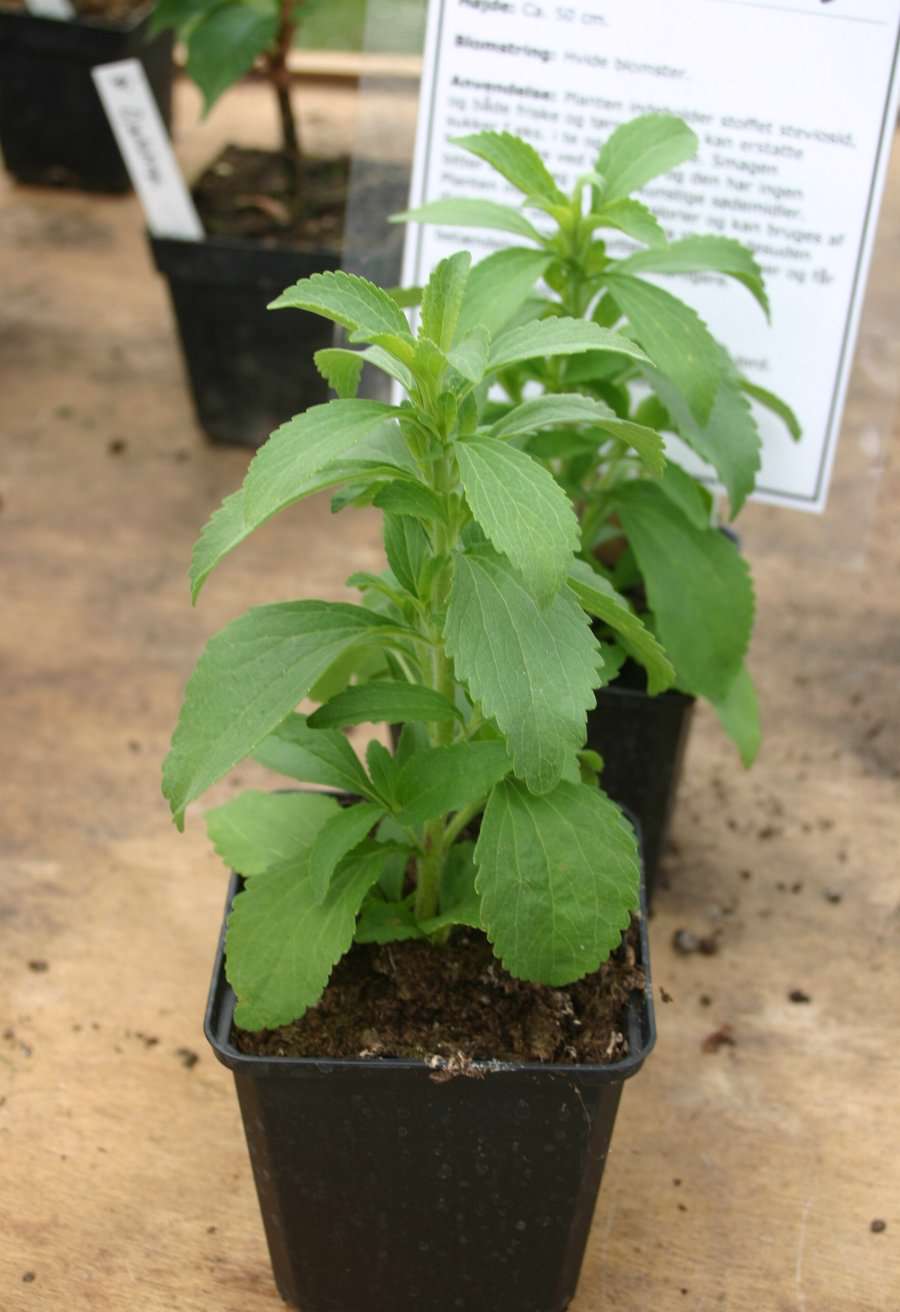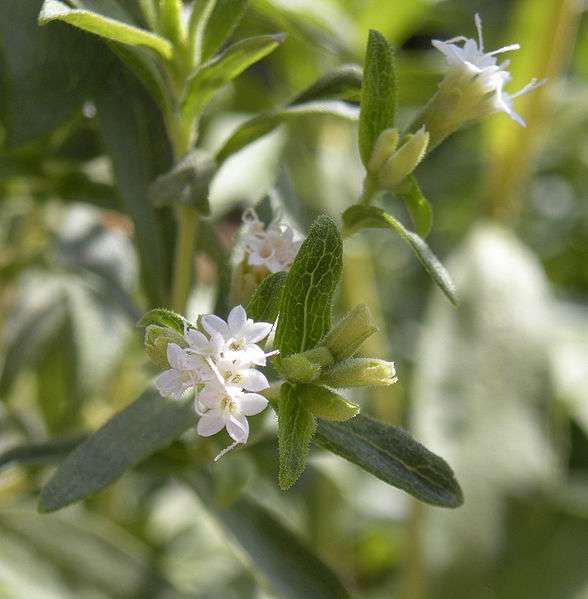Cargill claims extensive interest in Truvia ahead of expected EU approval
By Mohammadali Ardehali Professional Member of IFT

Food ingredients giant Cargill says there is "extensive" European interest in its natural stevia-based sweetener Truvia Rebiana, ahead of anticipated approval from the EU Commission for use of steviol glycosides as food ingredients.
The firm has spent seven years developing its ingredient rebiana (Truvia), which is derived from the steviol glycoside rebaudioside A, a compound contained in the leaves of South American shrub stevia rebaudiana.
Cargill plans to sell the zero-calorie sweetener (which is approximately 200 times sweeter than sugar) to EU consumers with a carrier as a tabletop sweetener; it says it is also partnering food firms to develop specific ingredients in products as baked snacks and yoghurts; beverages, however, are leading the way.
In April 2010 EFSA (European Food Safety Agency) approved the safety of a range of steviol glycosides derived from the stevia plant for use as food and beverage additives, and the EU Commission is expected to legalise their usage shortly.
Ann Clark Tucker, director of marketing and communications for Truvia, told FoodNavigator.com that Cargill had spent $10m dollars and three years preparing a dossier to satisfy EFSA’s requirements on safety and food manufacturing practices.

French launch planned
Following EFSA’s positive decision, she said that Cargill was seeing a “extensive interest from upcoming approval of stevia here in the EU”, especially ahead of Truvia’s scheduled launch as a tabletop sweeter in France from Q1 of 2011, which follows safety approval from the French Agency for Food Safety (AFSSA).
Truvia Rebiana is currently being used in France within Coca Cola's Fanta Still juice drink and Eckes Granini juice drinks under the Joker and Rea brands.
Tucker said that Truvia Rebiana is now consumed by around 4.5m households in the US, where it launched after FDA (Food and Drug Administration) approval in mid-2008, and now corners 8.2 per cent of the 'sugar substitute' market.
She said:“I think we have 150 projects ongoing with businesses worldwide, and US product launches show the fruits of our labour. Truvia has become the number three sweetener in only 20 months, surpassing many mature artificial sweeteners.”
Moreover, previous fears regarding premium prices for stevia-based sweeteners were not an issue now, she explained.“A 40-count box (equivalent to 80 tsp of sugar) costs $3.99. Given Truvia’s growing market share, price is no barrier to growth of the product and consumer interest."
Food ingredient applications
Cargill confirmed that the beverage market was driving European interest, with Zanna McFerson, Assistant VP of health and nutrition at Cargill, and head of the Truvia business saying:
“Of course, the beverage market is large...and the place to go because you have immediate impact of zero calories if you’re replacing sugar, and the impact of a natural product when replacing an artificial sweetener.”
Nonetheless, McFerson insisted Cargill was seeing interest across the food spectrum. “Overall this ingredient has applicability across all food products – baked goods, dairy and food preparations, confections. We even have a yoghurt product in the States.”
‘Shows no biomarkers’
An October 2008 US citizen's petition sought to block the acceptance of stevia as a sweetener in the US, and instead get it classified as a drug, given limited research supporting supposed health benefits.
These range from diabetes prevention to anti-carcinogenic effects, but Elizabeth Fay, head of communications for Truvia Europe rebutted suggestions that ‘stevia-drug’ connection might linger in the minds of consumers.
“The FDA completely reviewed that challenge and rejected without merit the idea that stevia is a drug.”
Accordingly, Tucker said that Cargill had no plans to produce a stevia product with marketable health benefits: “It’s a sweetener. It shows no biomarkers, unless it’s combined with something that has a health effect.”
However, with 200 varities of the stevia plant, she said the firm continued to work on products that harnassed its powers: “Rebiana is the best-tasting glycoside but overall Cargill has a comprehensive stevia glycoside business."
By: Mohammad Ali Ardehali
09122237381
France approves high Reb A stevia sweeteners
By Mohammadali Ardehali Professional Member of IFT

The French government has approved the use of stevia sweeteners with 97 per cent purity rebaudioside A (Reb A), officially opening up the first EU market for products containing the much-anticipated ingredient.
While full EU approval for stevia sweeteners is still dependent on a scientific opinion from the European Food Safety Authority (EFSA), France has taken advantage of window that allows individual member states to approve ingredients for a limited two year period.
The approval, published yesterday in France’s official journal, has been hotly anticipated by the industry since AFSSA, the French food agency, issued a positive safety opinion earlier this year.
The application for France was made by Greensweet. General manager Joël Perret told FoodNavigator.com: “This is very good news. It is the first opening for this type of ingredient in the EU market”.
The global sweetener market for food use was valued at US$1.83bn in 2007 by Leatherhead Food International. The intense sweeteners market is dominated by aspartame and, to a lesser extent, sucralose. However interest in food ingredients from natural sources has led some to consider that the stevia plant could provide ‘the holy grail’ of sweeteners.
Reb A is one of the major steviol glycosides found in the leaf of the Stevia rebaudiana plant. It is 300 times sweeter than sugar but has no calories, making it an attractive option for manufacturers catering to the market for foods and beverages with reduced, low or no sugar.
Activity anticipated
Based on enquiries so far Perret said there is the potential for hundreds of tonnes of Reb A to be used in products marketed in France in the coming months.
Manufacturers have already done considerable work on testing out potential uses. Now they will turn their attention to marketing and launches – but the first launches “could be very fast in some cases”.
Angus Flood, head of international marketing at Reb A supplier PureCircle, agreed; he said early adopters could have products on the market by the end of 2009.
According to Flood much of the early activity looks to be in the reformulation of products away from other sweeteners. Such a strategy would be a less risky way to enter the market than by launching a brand new product.
Not all steviol glycosides
Despite the excitement of the approval of Reb A in France, the news is bitter-sweet for Perret.
His original application to the French authorities was for stevia extracts with 95 per cent purity of steviol glycosides – not just Reb A. The Joint WHO/FAO Expert Committee on Food Additives (JECFA) gave a positive view of sweeteners with this profile in June 2008.
But AFSSA decided to consider only Reb A , “for unknown reasons” according to Perret, and to study the broader steviol glycoside profile separately.
“I am happy, because this is the end for me of a very long task. But a bit sad that we did not reach the final objective,” he said.
GreenSweet does offer both Reb A and steviol glycosides in its portfolio, so the company is still able to make its move in the French marketplace.
But Perret is not positive that the French authorities will pursue approval of steviol glycosides to the JECFA specification, as under the two-year window this would have to be secured by 31 December 2009.
Rather, France will most likely wait, like the rest of the EU, for steviol glycosides to pass by the conventional route through EFSA and the European Commission.
EFSA could give its opinion as early as March 2010. Depending on how long it then takes the Commission to put together the legal text, EU approval could come in 2010 or later.
By: Mohammadali Ardehali
09122237381
Stevia suppliers welcome EFSA opinion
Prepared By Mohammadali Ardehali (Professional Member of IFT)

Stevia suppliers have welcomed EFSA’s positive scientific opinion on the safety of stevia-derived sweeteners, saying it paves the way for generating more consumer interest in the natural sweetener.
The European Food Safety Authority (EFSA) issued a positive opinion yesterday on the safety of steviol glycosides – the sweet components of the stevia leaf – to be used as food additives after the European Stevia Association (Eustas), Cargill and Japanese firm Morita, all filed petitions seeking regulatory approval. The opinion is in line with that of the Joint FAO/WHO Expert Committee on Food Additives (JECFA), which approves the use of steviol glycosides at 95 per cent purity or above.
Stevia supplier Granular, which supplies the Real Stevia brand, has said it is working with a company called Liv Natur to bring a drink that uses stevia as the sole sweetener to market. The maté drink is due to be released in France in June, where the steviol glycoside rebaudioside A, or Reb A, was approved for use in September. Full regulatory approval throughout Europe for stevia-derived sweeteners is expected some time next year, as EFSA’s decision must now be passed on to the European Commission.
Marketing director at Granular, Florence Berglund, told FoodNavigator.com: “There is a strong interest from the market. The reason it hasn’t been picked up as fast as expected is that consumers need more awareness…This is one of the things we are really trying to do…For sure this scientific opinion is quite a significant step.”
She said that the regulatory status of stevia in Europe would be likely to garner interest from the mainstream press, which could also help raise awareness of the sweetener among consumers – and as awareness grows, more manufacturers are likely to get on board.
“I’m sure it will accelerate the R&D work,” Berglund said.
Stevia supplier GLG Life Tech has also welcomed EFSA’s opinion.
The company’s executive vice president of international affairs David Bishop said in a statement:
“This is a significant step forward for the industry and we look forward to introducing our high quality stevia extracts in Europe.
“GLG Life Tech is well positioned to take advantage of EFSA’s findings. We plan to collaborate with current and potential customers to develop and deliver products made with stevia to European grocery shelves.”
And fellow stevia supplier PureCircle has described the announcement as an important step forward.
PureCircle’s European vice president Peter Milsted said: "Our customers will be extremely encouraged by this announcement and it is a strong sign that European consumers will soon be able to choose naturally sweetened, reduced calorie products based on stevia, just like consumers in many other parts of the world."
In the United States, the Food and Drug Administration (FDA) issued letters of non-objection at the end of 2008 to firms seeking to use the steviol glycoside Reb A at 95 per cent purity or above.
By: mohammadali Ardehali
09122237381